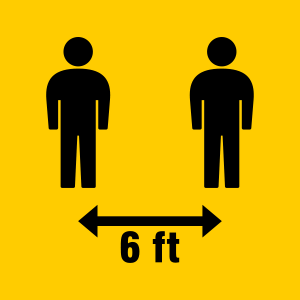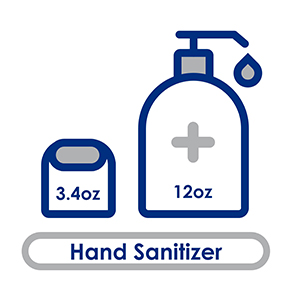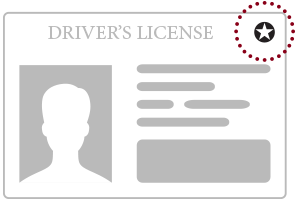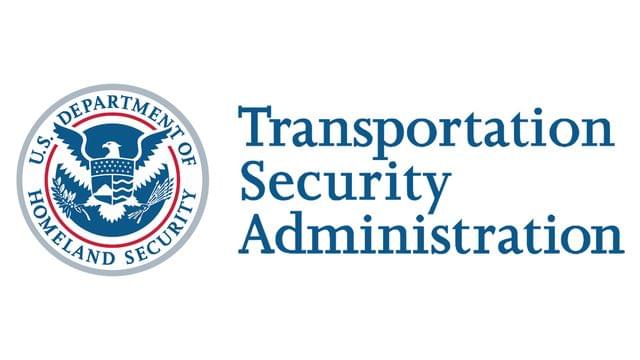5/21: The Transportation Safety Administration (TSA) issued the following info about updated rules & regulations when flying. They also disclosed that 590 TSA employees have tested positive for Covid-19 HOWEVER none of those cases came from the RDU Airport.
TSA Response to COVID-19
TSA understands that the novel coronavirus (COVID-19) continues to weigh heavily on the minds of travelers and the general public. We have established this webpage to provide resources and information to assist passengers who find they must travel during this challenging time. TSA remains dedicated to our mission of ensuring that travelers get to their destinations as safely and securely as possible. For the latest press releases and statements related to COVID-19, please visit our media page.
Traveling During the COVID-19 Pandemic
Travelers are reminded to follow the Centers for Disease Control and Prevention (CDC) travel and prevention guidance regarding COVID-19. This includes practicing good hygiene, such as washing your hands regularly. In addition to those CDC recommendations, travelers are encouraged to wash their hands directly before and after completing the security screening process and that you place personal items such as wallets, keys or phone in your carry-on property that will be screened through the X-ray system. You may wear a facemask during the screening process, but a TSA officer may ask the traveler to adjust the face covering at any point during the screening process.
Employees or travelers who believe they may have been in contact with a person who has COVID-19 should consult with their healthcare provider. Employees or travelers who have tested positive for COVID-19 should seek medical attention and follow the guidance of their healthcare provider and local health department.
Security Checkpoints
While security is TSA’s top priority, the health and safety of our employees and the traveling public is of utmost importance to us. TSA remains in close communication with medical professionals, the CDC, and various government agencies as we continue to carry out our important mission.
Below are some adjustments TSA has made at security screening checkpoints in response to the COVID-19 pandemic:
- Passenger Volumes

TSA is consolidating its screening operations to adjust for reduced flight and passenger volumes. Impacted security checkpoints may close as a result, so passengers may be redirected to other security screening checkpoints at the airport. View a comparison of TSA checkpoint screening numbers for 2019 and 2020.
- Social Distancing

TSA has implemented procedures to increase social distancing and reduce direct contact between our employees and the traveling public whenever possible – all without compromising security. Adjustments include metering passengers to increase the distance between individuals as they enter the security checkpoint queue, placing visual reminders of appropriate spacing on checkpoint floors, and staggering the use of lanes in the security checkpoint where feasible.
- Cleaning and Disinfecting

TSA has issued guidance to frontline employees to conduct routine cleaning and disinfecting of frequently touched surfaces and security screening equipment at the TSA security checkpoint. Other steps we are taking to make the security process safer include using a fresh pair of gloves upon passenger’s request and using new Explosives Trace Detection swabs for each person.
- Medical Exemption for Hand Sanitizer

TSA is allowing one liquid hand sanitizer container, up to 12 ounces per passenger, in carry-on bags until further notice. Since these containers exceed the standard allowance typically permitted through a checkpoint, they will need to be screened separately. This will add some time to your checkpoint screening experience. Please keep in mind that all other liquids, gels, and aerosols brought to a checkpoint continue to be limited to 3.4 ounces or 100 milliliters carried in one quart-size bag. Learn about TSA’s special procedures for traveling with medication.
- Expired Driver’s License and REAL ID Extension

If your driver’s license or state-issued ID expired on or after March 1, 2020, and you are unable to renew at your state driver’s license agency, you may still use it as acceptable identification at the checkpoint. TSA will accept expired driver’s licenses or state-issued ID a year after expiration. DHS recently announced an extension of time to obtain a REAL ID-compliant driver’s license. The new deadline is October 1, 2021. Learn more on TSA’s REAL ID webpage.
